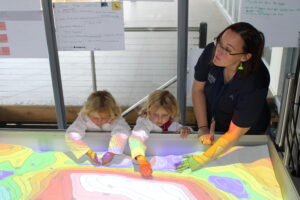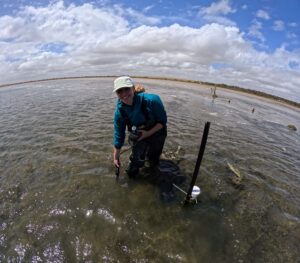In a report released in early April 2019, the Goyder Institute for Water Research presented the findings of its independent review of the science that underpinned water allocation reductions to irrigators in the South East of South Australia.
The work was commissioned by the South East Natural Resources Management (NRM) Board and the Institute in order to inform the implementation of the 2013 Lower Limestone Coast Water Allocation Plan (LLC WAP).
The LLC WAP sets out the rules to protect water resources in the region for all water users, now and into the future. The 2013 LLC WAP includes proposed reductions to water allocations based on a risk assessment undertaken in 2012. The six management areas subject to the largest reductions are Coles, Short, Frances, Hynam East, Zone 3A and Zone 5A (see map below). The LLC WAP identified that water allocation reductions were to take place in 2016, 2018, 2020 and 2022. Due to concerns raised about the science that underpinned the 2012 risk assessment, the Minister for Environment and Water, The Honourable David Speirs MP, put the 2018 reductions on hold to allow an independent review to be conducted.
The independent review was undertaken by an Expert Panel that was chaired by Professor Craig Simmons (Director of the National Centre for Groundwater Research and Training, Flinders University), and included Professor Peter Cook (Flinders University), Dr Lu Zhang (CSIRO) and Professor Andrew Boulton (Flinders University).
The Expert Panel provided information that will feed into an updated risk assessment and a full review of the Water Allocation Plan. The Panel found that a substantial body of scientific work underpins water allocation planning in the LLC WAP, and is supported by quantitative data and information regarding water level trends. However, it considered the risk assessment (the final part of the technical process) to have some limitations, which has potential implications for the final risk ratings for different management areas.

The Panel made multiple recommendations in the main report and highlighted five high-level ones:
- Expanding the existing groundwater level and salinity monitoring networks to better examine water level and salinity trends over time.
- Updating groundwater modelling to include a suite of subregional models that can answer specific management questions at a range of spatial and temporal scales.
- Using modelling to examine whether salinity increases are due to historic clearing of vegetation and/or recycling of groundwater associated with irrigation activities.
- Expanding the hydrological and ecological monitoring of wetland groundwater dependent ecosystems (GDEs) and assess what other GDEs occur in the LLC.
- Improving confidence in the risk assessment process by describing the influence of different factors on risks at finer scales, better justifying how each risk level was determined, and examining how each factor influences the final risk assessment.
To reach these recommendations, the Panel reviewed the existing documentation, undertook additional analysis of water level trends and considered a wide range of questions raised by the South East NRM Board’s Stakeholder Advisory Group. They concentrated on four main areas – estimating total available recharge (TAR); water level and salinity trends; groundwater dependent ecosystems (GDEs); and risk assessments (see fact-sheet for more information).
The Institute’s Expert Panel presented its findings to the South East NRM Board and to its Stakeholder Advisory Group and anticipates they’ll be used to inform and improve the implementation of the LLC WAP.
This project is another great example of the Goyder Institute’s ability to bridge science and policy, bringing experts together to provide independent advice to water managers and policy-makers on important water resource management issues.
You can read the full report here or contact Goyder Institute Director Dr Kane Aldridge to find out more about the Institute’s capabilities.


